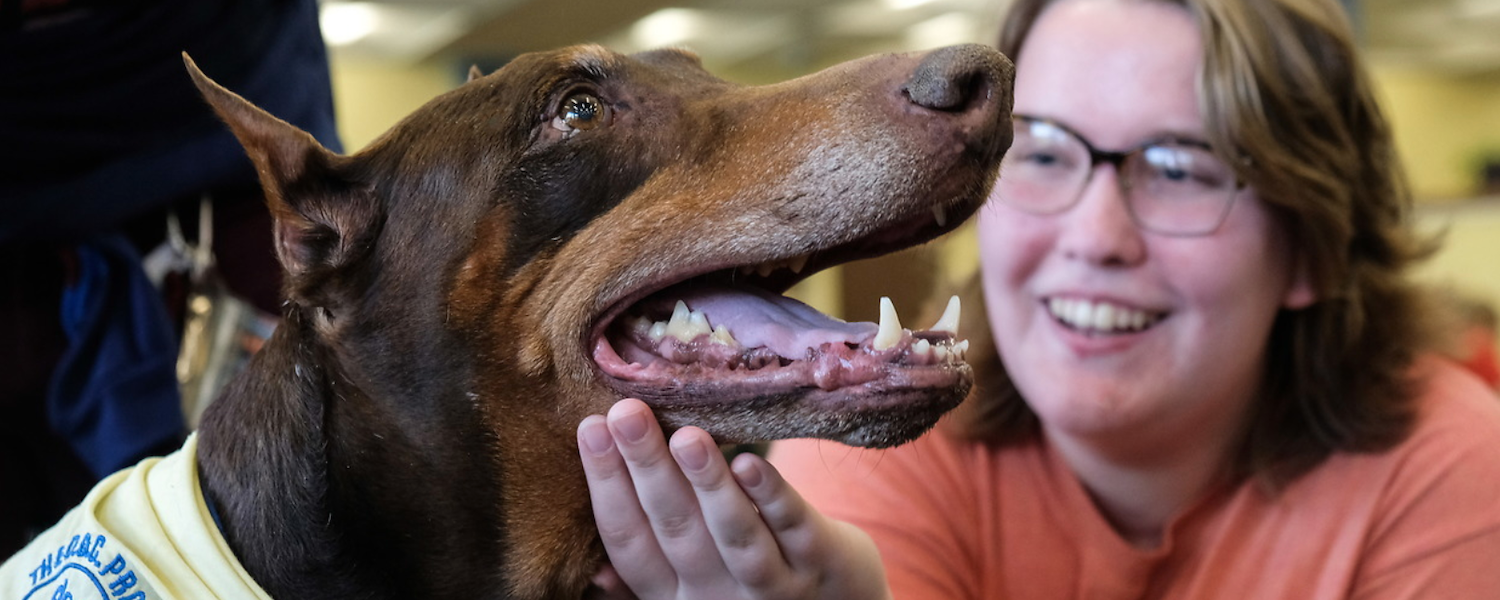Bridget Tetzlaff is a senior and member of the Wickliffe High School bowling team in Wickliffe, Ohio. She is on the academic challenge team. She is a two-time national pageant winner. However, she also has cerebral palsy, congenital heart disease and anxiety.
Fox 8 recently reported on Tetzlaff’s journey and her dream of attending Kent State University as an engineering major this coming fall 2023. To attend college, she will require a service dog to accommodate her needs.
“Having that emotional support from a service dog and having mobility support for me to lean on it when I’m tired from walking would save me a lot of energy,” Tetzlaff told Fox 8 News.
Tetzlaff and her family have fundraised with Working Animals Giving Service For Kids (WAGS 4 Kids) to get a service dog. At this time, the fundraiser has reached its goal of $9,000.
Kent State campuses are no stranger to service animals. With 32 service dogs currently registered across all campuses and student organizations that train future service dogs, like Paws with a Cause, the Kent State community happily welcomes these animals.
Kent State’s Student Accessibility Services (SAS) office supports more than 1,500 students. SAS offers support for students needing accommodations whether those be in academics, transportation or housing.
SAS also hosts campus-wide programs around topics such as disability management, stress management and self advocacy. One of their newer sessions, “Accessibility Animals on Campus,” is offered twice a semester and will be presented again to the campus community in fall 2023. The course educates on the difference between service animals, service dogs and emotional support animals and how each type of animal provides support.
Kent State follows American Disability Association regulations for service dogs. Amanda Feaster, director of SAS, in the Division of Student Affairs, shared the two questions that determine if an animal is a service animal according to those regulations. One, is the dog required because of a disability? Two, what task is the animal trained to do?
“As long as that is congruent, we consider the animal a service dog, and the dog has almost complete access to everything on campus,” Feaster said. “Classrooms, housing and dining facilities. There are few exceptions to where service dogs aren’t allowed to go. In those cases, we work with the student to figure out alternative accommodations.”
Feaster’s biggest piece of advice for students who may be bringing a service dog to a Kent State campus is to be confident in an answer when someone asks about your dog.
“The thing we hear most from our students is that people are fine with the dog, but they want to pet the dog, or they want to interact because it’s so cute. So, you’ll want to have an approach on how you want to handle that,” Feaster said. “There’s not a right or wrong way, it’s just how the person feels comfortable.”
SAS does not require students to register their service dogs, but it is encouraged. When a service dog is registered with Kent State, it allows SAS to provide extra support to the student.
“We encourage students to connect with our office as early as possible,” Feaster said. “Service dogs are welcome, but sometimes the person also has additional access needs. We like to get all of those things sorted out in advance.”
Find more information about Kent State’s Student Accessibility Services Office.
Learn more about animals on campus.

